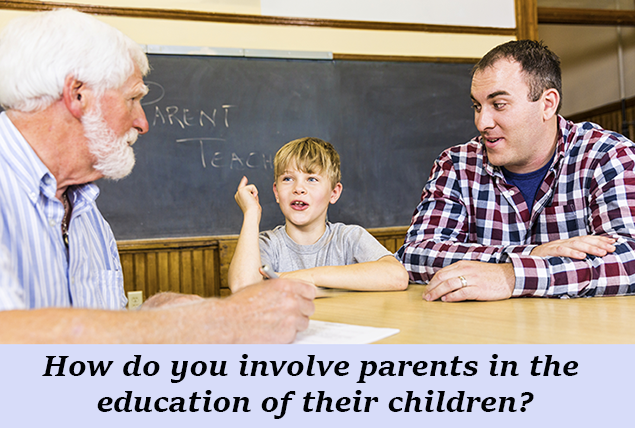How Can Teachers Motivate And Partner With Parents?
Posted by Network Support · Leave a Comment
Parents in Partnership
Parent involvement has been proven to be the key ingredient to increasing student success in school…
Nelson Mandela quotes, “Education is the most powerful weapon which you can use to change the world.” However, the task of educating the child in a wholesome way, the problem of school dropouts or lack of interest in education shown by some students is a huge mountain for the school to tackle alone.
Teacher and parent partnerships have been seen to improve the child’s educational experience and benefit the student, the family, the school, and the community at large. Parent involvement has been proven to be the key ingredient to increasing student success in school. The working together of the parent and the teacher needs to be considered seriously and translated as applicable for improved educational outcomes.
In a partnership teachers and parents are the core members, with the school staff and community acting in a supportive role. A partnership is a relationship designed to bring relevant individuals together to contribute to improving a given situation or circumstance. Simply explained, partnership involves the coming together of two or more individuals for a common cause that will have a more significant result than if the individuals worked alone.
A partnership requires that the people involved have a common goal and work towards it in understanding of the need for each other and their specific roles. In the school setting, the educational partnership is formed by the people directly involved with an individual student.
Benefits of Partnering
The benefits of partnering far exceed the effects of a teacher-only approach to education. Here are some benefits of teachers working with parents.
1. Self Esteem
Academic success and parental support increase the student’s self-esteem. When a child feels confident he becomes more self-motivated and willing to take risks such as participating in extra credit assignments and extra-curricular activities. School becomes a safe and enjoyable place which results in better attendance.
2. Decreased Violence
Success reduces the need to find other means to feel good. Students that gain positive feedback at school and at home have fewer instances of violence and gang related behavior, as well as decreased use of drugs and alcohol.
3. Positive Behavior
With the combined solid foundation of school success and parental involvement, children adapt better to the school environment. Their social skills and behavior are better than those children with uninterested or uninvolved parents. They are healthier both socially and emotionally.
4. Higher Grades
When parents demonstrate an interest and concern about scholastic achievement, children tend to rise to the occasion. Higher, but reasonable expectations from parents motivate kids to do their best. Studies have shown that children with strong parent support strive to earn higher grades, receive higher test scores, enroll in more challenging and higher-level programs, pass classes, be promoted to the next grade level, have higher graduation rates, and will be more likely to go on to post-secondary education.
Thus, all these benefits make it important for the teacher and the school to include parents in the educational process from kindergarten through high school. The sooner the teacher-parent partnership starts, the more powerful the positive effects of that involvement will be.
Like this article for teachers?
Browse the Professional Learning Board COURSE CATALOG to find related online courses for teachers in your state. Professional Learning Board is a leading provider of online professional development classes that teachers use to renew a teaching license or renew a teaching certificate.





